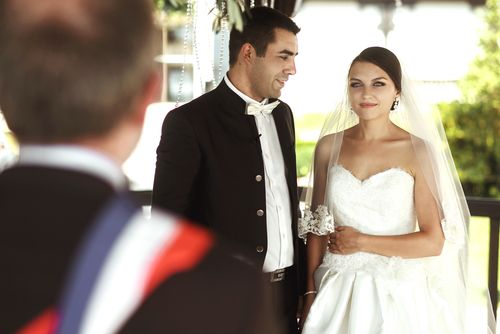 The role of the ordained minister is one of the most important involved in a wedding. Without this person, the ceremony would not be able to take place and the event would be all for show. Whether you’re looking to be a wedding officiant in Colorado or another state, it is important that you have a general idea of what it means to become an officiant and how the process can differ depending on certain factors. In order for you to do your duties to the best of your abilities, you have to come to the table prepared.
The role of the ordained minister is one of the most important involved in a wedding. Without this person, the ceremony would not be able to take place and the event would be all for show. Whether you’re looking to be a wedding officiant in Colorado or another state, it is important that you have a general idea of what it means to become an officiant and how the process can differ depending on certain factors. In order for you to do your duties to the best of your abilities, you have to come to the table prepared.
From the moment you start your officiant application until the time the wedding papers have been signed and handed to the clerk’s office, you need to stay aware of the different challenges that the officiant may face. Consider these points and gain a bit of perspective.
The Application Process
One of the nicest aspects of becoming an officiant is that the preliminary process is actually very straightforward. All you need to do is dedicate about ten minutes to visiting the official portal of the Universal Life Church. The application requires that you provide a few basic bits of information, specifically the state in which the wedding will be held and your official name as it appears on verifiable legal documents. Once all of this has been successfully completed, you submit the application and will hear back about your status immediately.
The Importance of the State
You may have noticed that the application requests information related to the state where the wedding will be conducted and not your state of residence. This is a very important distinction to note, as you need to be ordained in the state where the wedding takes place in order for the marriage to be considered legal. This is due to the fact that each state has different laws and regulations when it comes to marriage. Putting the wrong state down on your application means you will need to resubmit for the correct state as soon as possible.
A Colorado wedding officiant will have a different set of parameters than the Georgia wedding officiant requirements, so you cannot assume that this is a one-size-fits-all model. You may want to dive a bit deeper and look into the exact laws of the state in which you will be performing the marriage. Though the regulations will likely not be anything too restrictive, you may need to take additional steps that you had not considered. To ensure the couple’s big day goes off in the perfect manner, check all your boxes thoroughly.
The Small Events
More often than not, a couple will ask a friend or relative to act as the officiant when the wedding is going to be a standard affair. This means that it will be a traditional wedding and not an incredibly small, personal, or intimate gathering. However, there may come a scenario where you’re asked to act as the officiant for an event that includes only the couple and their witnesses. In this arrangement, you need to be very diligent about reviewing the regulations. For example, witness requirements vary by state, and you may need someone present other than yourself.
Reviewing the rules should be a preliminary part of the registration process. Before you fill out the application, look at the guidelines for the state in question. Coming to the table prepared with answers to inquiries such as “how to become an officiant in California” can make you feel more confident in your ability to complete everything in the required way.
The Final Solution
While a simple process in a broad sense, becoming a wedding officiant is still an important task that deserves time and attention. Learn more about the regulations in the state where you plan on performing the marriage and see what you need to do to show up ready to go.